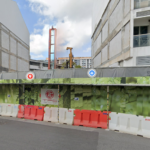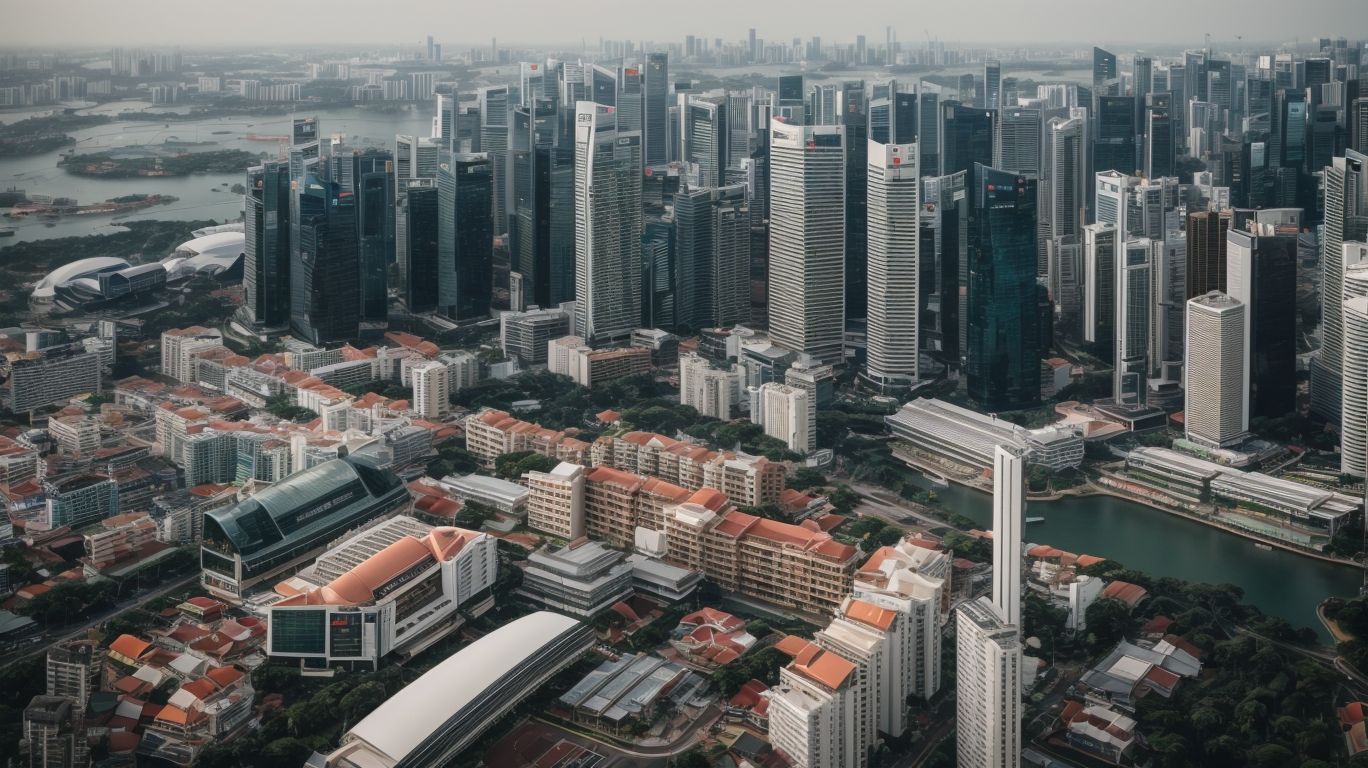Are you a property owner in Singapore? If so, you may have heard about property tax, but do you fully understand what it is and how it affects you? In this article, we will break down the details of property tax in Singapore and why it is important for taxpayers to have a clear understanding of this topic to avoid any potential financial burden.
What is Property Tax?
Property tax is a mandatory payment that property owners are required to make. It is usually calculated based on the property’s value, which includes the land. In Singapore, all types of properties, such as residential, commercial, and industrial, are subject to property tax. The amount of tax is determined by the property’s annual value, which is an estimation of the yearly rent the property could generate if it were to be leased out.
How is Property Tax Calculated in Singapore?
- Determine the annual value of the property, based on estimated market rent.
- Apply progressive tax rates ranging from 0% to 16% for residential properties, and a flat rate of 10% for non-residential properties.
- Calculate the property tax by multiplying the applicable tax rate with the annual value of the property.
To understand how property tax is calculated in Singapore, it is important to know the annual value calculation and tax rates for different property types. Seeking professional advice can also offer valuable insights and strategies for saving on taxes.
What is the Annual Value of a Property?
The annual value of a property is the estimated annual rent it would generate if it were to be rented out. This value takes into account factors such as the property’s size, location, and facilities. In Singapore, the Inland Revenue Authority of Singapore (IRAS) determines the annual value and updates it annually to reflect changes in the property market.
If you believe that your property has been over-assessed, you can appeal for a lower annual value to lower your property tax amount.
What is the Property Tax Rate?
The property tax rate in Singapore is determined by the property’s annual value and varies depending on the type of property. Residential properties have a range of progressive tax rates, starting from 0% and going up to 16%. Meanwhile, non-residential properties have a flat tax rate of 10%. The annual value of a property plays a crucial role in determining the applicable tax rate, with higher annual values resulting in higher tax rates. It is important for property owners to have a clear understanding of the property tax rate in order to accurately assess their tax liabilities.
How is the Property Tax Amount Calculated?
- Step 1: Determine the Annual Value of the property by considering factors such as market rent, property type, and location.
- Step 2: Identify the Property Tax Rate applicable, which is based on the Annual Value.
- Step 3: Calculate the Property Tax Amount by multiplying the Annual Value with the Property Tax Rate.
How is the Property Tax Amount Calculated?
Who is Responsible for Paying Property Tax in Singapore?
In Singapore, the responsibility of paying property tax falls on the property owner. It is important for the owner to make timely payments to avoid any penalties. However, if the property is being rented out, the tax responsibility usually falls on the landlord, unless stated otherwise in the tenancy agreement. It is crucial for both property owners and tenants to understand who is responsible for paying property tax in Singapore.
To ensure compliance, property owners should keep themselves updated with the latest tax regulations and deadlines. Seeking professional advice can also provide clarity on their tax obligations.
Are There Any Exemptions or Rebates for Property Tax in Singapore?
In Singapore, there are various exemptions and rebates available for property tax under certain conditions. If you own and occupy a residential property, you may qualify for a concession of up to 4% off the tax. Properties that are currently under development or redevelopment may also be eligible for remission. Additionally, properties used for charitable or religious purposes may be exempt from property tax.
It is important to stay informed about these potential exemptions and rebates when navigating property tax in Singapore in order to optimize your tax liabilities.
What is the Owner-Occupier Tax Rates Scheme ?
The Owner-Occupier Tax Rates Scheme (OOTRS) in Singapore offers tax reductions for residential properties that meet specific criteria. This scheme was designed to provide financial relief for property owners who reside in their own homes. Under OOTRS, properties occupied by their owners are taxed at lower progressive rates compared to properties that are not owner-occupied. To qualify, the property must be the owner’s sole residential property and occupied by the owner or the owner’s family.
This scheme, also known as OOTRS, is a great way for property owners to save on taxes while living in their own homes.
Are There Any Other Tax Relief Schemes Available?
Yes, aside from the Owner-Occupier Tax Rates Scheme, Singapore also offers additional tax relief schemes for property owners. These include the Rental Waiver for Properties Affected by Restrictions, which grants a rental waiver to qualifying tenants, and the Property Tax Rebate for Non-Residential Properties, providing a 30% rebate for non-residential properties. Moreover, there are tax relief schemes for eco-friendly properties and those under conservation, aiming to offer financial assistance and incentives for property owners.
In 1959, the Singapore government implemented the Property Tax Act, establishing the foundation for the current property tax system and ensuring a stable revenue source for public expenditure.
What Happens if Property Tax is Not Paid?
If property tax is not paid, the government may impose penalties, fines, or even auction off the property to recoup the unpaid taxes. This can also result in legal action being taken or liens being placed on the property. Furthermore, failure to pay can have a detrimental effect on the individual’s credit score and financial standing.
How to Pay Property Tax in Singapore?
- To pay your property tax in Singapore, first log in to the IRAS website using your SingPass or IRAS PIN.
- Once logged in, select ‘View Property Portfolio’ under ‘My Property’ to access your property tax information.
- From there, choose ‘Pay Tax’ and follow the instructions to complete the payment.
- You can make payments through various channels, including AXS stations, internet banking, or Giro.
- Be sure to keep records of your payment for future reference.
What Are the Payment Modes Available?
Payment modes available for property tax in Singapore include GIRO, eNETS, AXS stations, and internet banking. It is important to make timely payments to avoid penalties.
Sarah, a property owner in Singapore, found the GIRO payment mode to be the most convenient for her property tax. It allowed her to never miss a payment deadline and effectively manage her finances.
When is the Deadline for Property Tax Payment?
The deadline for property tax payment in Singapore is usually on January 31st of every year. It is crucial for property owners to make timely payments to avoid facing late payment penalties and interest charges, which can significantly increase the total amount due. This strict enforcement of property tax payment deadlines in Singapore is necessary to maintain efficient revenue collection for government operations and the provision of public services.
How Can Property Owners Lower Their Property Tax in Singapore?
As a property owner in Singapore, understanding how to lower your property tax can save you a significant amount of money. In this section, we will discuss three ways to potentially decrease your property tax bill. First, we will explore the option of claiming tax deductions for eligible expenses related to your property. Next, we will look at the process of appealing for a lower annual value, which is used to calculate your property tax. Finally, we will discuss the possibility of applying for property tax rebates, which can provide additional savings for property owners.
1. Claiming Tax Deductions for Expenses
- Gather all relevant receipts and documents for expenses related to the property.
- Identify eligible expenses such as mortgage interest, repairs, maintenance, and property management fees.
- Keep records of any expenses incurred for rental properties, including advertising, insurance, and legal fees.
- Consult a qualified tax professional to ensure compliance and maximize deductions for claiming tax deductions for expenses.
2. Appealing for Lower Annual Value
Filing for a lower annual value in Singapore requires submitting relevant documentation to the Inland Revenue Authority. Property owners can provide evidence of comparable properties with lower annual values or demonstrate property devaluation due to external factors such as nearby construction.
Fact: In Singapore, property owners have the option to file an appeal for a lower annual value by providing substantial evidence of their property’s devaluation.
3. Applying for Property Tax Rebates
- Gather all required documents and information, such as property details and ownership status, before proceeding.
- Ensure that you meet the eligibility criteria for property tax rebates.
- Fill out the rebate application form with accuracy.
- Submit the completed application before the specified deadline.
- Wait for the application to be reviewed and approved.









